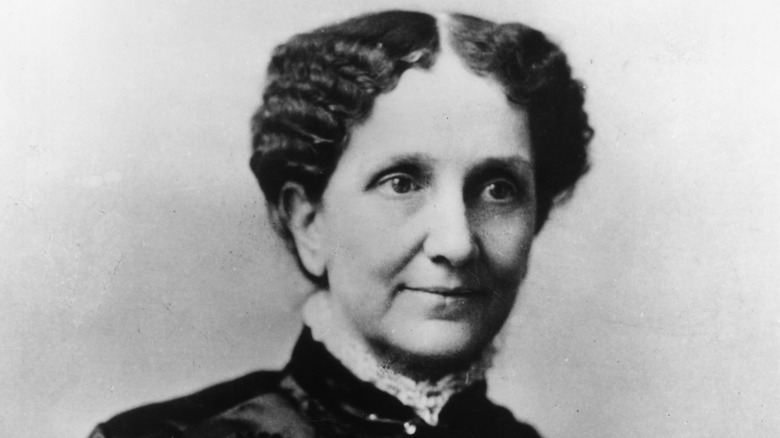The Truth About The Christian Science Church
The words "Christian" and "science" don't typically jive, so the religion called Christian Science is one of those things that makes you wonder what the church is all about. The name, though, has more to do with something like copyright than anything resembling actual science — in fact they eschew one science that most Christians accept even as Christians generally believe in creationism over evolution. Christian Scientists mostly choose prayer over medical science when it comes to healing and curative practices.
The church is an offshoot of Christianity that is rare in that it was established by a woman, Mary Baker Eddy. According to Women's History, a fall in 1866 left her bedridden for several months, at which time she spent time studying the Bible, particularly the stories of healing. She felt like if Jesus could heal people, others could harness those same healing powers. Per Christian Science, they look to the Bible's New Testament where it says, "Whoever believes in me will do the works I have been doing, and they will do even greater things than these," (John 14:12, New International Version) and they really take that to heart.
As for the name, according to the Mary Baker Eddy Library, she went with the title "The Church of Christ (Scientist)" because just plain old "Church of Christ" was already taken when she tried to register her church with the state of Massachusetts in 1879. More legalities saw the name get changed to "The First Church of Christ, Scientist."
Christian Science has alternative views on reality
The Christian Science church teaches some of the same things as other denominations of Christianity, according to Christian Science, such as, "we take the inspired Word of the Bible as our sufficient guide to eternal Life." They believe that Jesus is the son of God and humans were created in God's image. They also believe that the miracle of resurrection happened to Jesus after death. However, in their tenets, they don't mention the typical, "Jesus died for our sins," but rather, they say, "We acknowledge that the crucifixion of Jesus and his resurrection served to uplift faith to understand eternal Life, even the allness of Soul, Spirit, and the nothingness of matter."
The "nothingness of matter" is important because it's a big area where Christian Science and Christianity differ. The idea is, what we think of as reality, the material world, is not real at all.
"The founder and leader of the church, Mary Baker Eddy, taught that disease was unreal because the human body and the entire material world were mere illusions of the credulous, a waking dream. Those who awoke and knew the 'Truth' could be instantaneously healed," former Christian Scientist Caroline Fraser explained in The Guardian.
Christian Science teaches that Jesus was one such evolved being, so he was able to heal others. In Christian Science's sixth tenet they pray, "And we solemnly promise to watch, and pray for that Mind to be in us which was also in Christ Jesus."
'Like Jonestown in slow motion'
According to Britannica, a person can be a Christian Scientist and still go to a dentist or optometrist, use obstetricians for childbirth, and go to orthopedic doctors for broken bones. The church is also big on following health laws like getting vaccinations and quarantining when required. But within the religion, they also have their own practitioners who work as full-time faith healers.
Britannica says that there have been more than 50,000 "testimonials of healing" since the early 20th century thanks to Christian Science's faith healing, but adds that those were largely emotional problems, psychosomatic issues, or were health issues that were undiagnosed in the first place. However, Britannica says there have also been a "substantial number of 'healings' involve conditions diagnosed by physicians as congenital, degenerative, or terminal, though there has been little systematic evaluation of such healings."
Alternately, many with medically treatable illnesses have died under the care of Christian Scientist practitioners, including children, according to Children's Health Care. The tragedy is not only the death, but the suffering that precedes it as people slowly languish to death, as described by Fraser in The Guardian, whose father died a slow and painful illness under the care of faith healers — including his foot falling off due to gangrene — prior to his death.
A California prosecutor involved in a Christian Science child death case described the church's role in the needless death as "like Jonestown in slow motion," according to Salon.


